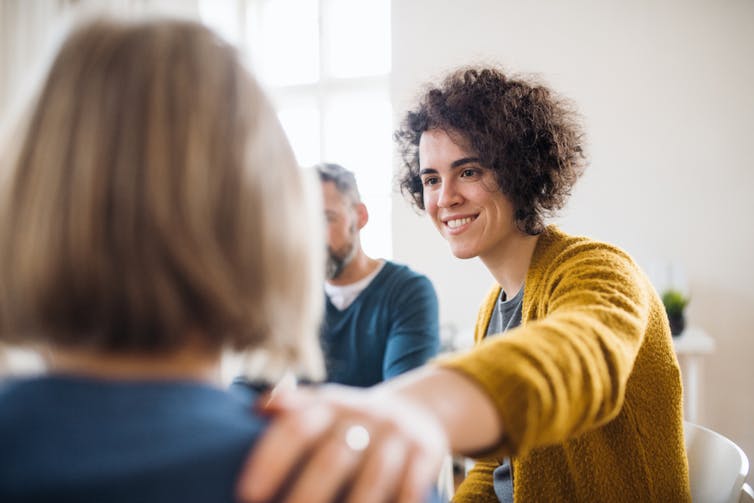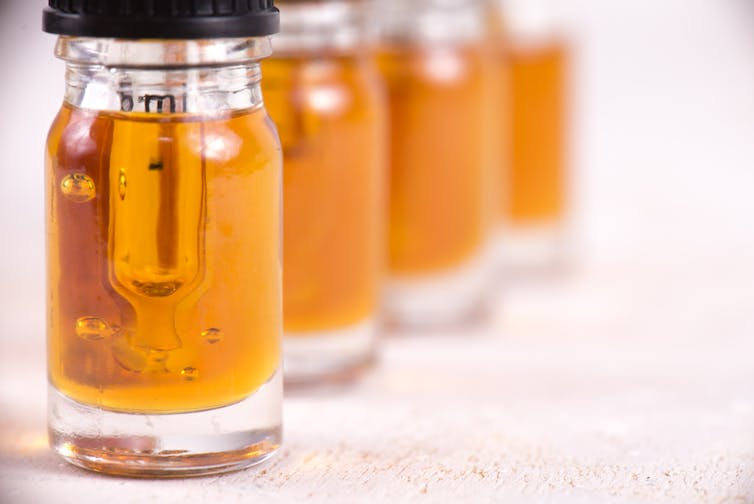
This article is the next in The Conversation’s six-part series on insomnia, which charts the rise of insomnia during industrialisation to sleep apps today. Read other articles in the series here.
Do you have difficulty falling asleep? Do you stay awake for a long time at night? Do these sleep problems make you feel fatigued, strung-out, or exhausted during the day? Has this been happening for months?
If so, you’re not alone. About 12-15% of Australian adults have chronic insomnia.
You might have tried breathing exercises, calming music, white noise, going to bed in a dark and quiet bedroom, eating different foods in the evening, maintaining a regular sleep pattern, or reducing caffeine. But after three to four weeks of what seems like progress, your insomnia returns. What next?
Read more: A short history of insomnia and how we became obsessed with sleep
What not to do
These probably won’t help:
spending more time in bed often results in more time spent awake in bed, which can make insomnia patterns worse
drinking coffee and taking naps might help get you through the day. But caffeine stays in the system for many hours, and can disrupt our sleep if you drink too much of it, especially after about 2pm. If naps last for more than 30 minutes, or occur after about 4pm, this can reduce your “sleep debt”, and can make it more difficult to fall asleep in the evening
drinking alcohol might help you fall asleep quicker, but can cause more frequent awakenings, change how long you sleep, change the time spent in different “stages” of sleep, and reduce the overall quality of sleep. Therefore, it is not recommended as a sleep aid.
Read more: Why do I fall asleep on the sofa but am wide awake when I get to bed?
What to do next?
If your symptoms have lasted more than one or two months, it is likely your insomnia requires targeted treatments that focus on sleep patterns and behaviours.
So, the next stage is a type of non-drug therapy known as cognitive behavioural therapy for insomnia (or CBTi for short). This is a four to eight week treatment that’s been shown to be more effective than sleeping pills.
It involves education about sleep, and offers psychological and behavioural treatments that address the underlying causes of long-term insomnia.
You can do this one-on-one, in a small group with health professionals trained in CBTi, or via self-guided online programs.

Some GPs are trained to offer CBTi, but it’s more usual for specialist sleep psychologists to offer it. Your GP can refer you to one. There are some Medicare rebates to subsidise the cost of treatment. But many psychologists will also charge a gap fee above the Medicare subsidy, making access to CBTi a challenge for some.
About 70-80% of people with insomnia sleep better after CBTi, with improvements lasting at least a year.
Read more: What makes a good psychologist or psychiatrist and how do you find one you like?
What if that doesn’t work?
If CBTi doesn’t work for you, your GP might be able to refer you to a specialist sleep doctor to see if other sleep disorders, such as obstructive sleep apnoea, are contributing to your insomnia.
It can also be important to manage any mental health problems such as depression and anxiety, as well as physical symptoms such as pain that can also disrupt sleep.
Some lifestyle and work factors, such as shift-work, might also require management by a specialist sleep doctor.
What about sleeping pills?
Sleeping pills are not the recommended first-line way to manage insomnia. However, they do have a role in providing short-term, rapid relief from insomnia symptoms or when CBTi is not accessible or successful.
Traditionally, medications such as benzodiazepines (for example, temazepam) and benzodiazepine receptor agonists (for example, zolpidem) have been used to help people sleep.
However, these can have side-effects including a risk of falls, being impaired the next day, as well as tolerance and dependence.
Melatonin – either prescribed or available from pharmacies for people aged 55 and over – is also often used to manage insomnia. But the evidence suggests it has limited benefits.
Read more: Some reasons why you should avoid sleeping pills
Are there new treatments? How about medicinal cannabis?
Two newer drugs, known as “orexin receptor antagonists”, are available in Australia (suvorexant and lemborexant).
These block the wake-promoting pathways in the brain. Early data suggests they are effective in improving sleep, and have lower risk of potential side-effects, tolerance and dependence compared with earlier medicines.
However, we don’t know if they work or are safe over the long term.

Medicinal cannabis has only in recent years been studied as a treatment for insomnia.
In an Australian survey, more than half of people using medicinal cannabis said they used it to treat insomnia. There are reports of significant benefit.
But of the four most robust studies so far, only one (led by one of us, Jen Walsh) has demonstrated an improvement in insomnia after two weeks of treatment.
So we need to learn more about which cannabinoids – for example, delta-9-tetrahydrocannabinol, cannabidiol or cannabinol – and which doses may be beneficial. We also need to learn who can benefit most, and whether these are safe and effective over the long term.
Read more: 1 in 10 women with endometriosis report using cannabis to ease their pain
What now?
If you’ve had trouble sleeping for a short time (under about a month) and nothing you try is working, there may be underlying reasons for your insomnia, which when treated, can provide some relief. Your GP can help identify and manage these.
Your GP can also help you access other treatments if your insomnia is more long term. This may involve non-drug therapies and/or referral to other services or doctors.
For more information about insomnia and how it’s treated, see the Sleep Health Foundation’s online resource.
Alexander Sweetman is a Senior Program Manager at the Australasian Sleep Association, the peak sleep health scientific and advocacy body in Australia and New Zealand, and has academic status at Flinders University. Dr Sweetman reports previous research funding and/or consultancy work for; the National Health and Medical Research Council, The Hospital Research Foundation, Flinders University, Flinders Foundation, ResMed, Philips, Cerebra, Re-Time, and Australian Doctor.
Jen Walsh is affiliated with the Centre for Sleep Science at The University of Western Australia and the West Australian Sleep Disorders Research Institute at Sir Charles Gairdner Hospital. She is a director of the Australian Sleep Association (ASA), and a member of the Australia and New Zealand Sleep Science Association (ANZSSA) and Sleep Health Foundation (SHF). Jen Walsh has received research funding (past) from the NHMRC, Sir Charles Gairdner Hospital research advisory committee, Australia and New Zealand College of Anaesthetists (ANZCA), Oventus Pty Ltd, Nyxoah Pty Ltd, Zelira Therapeutics Ltd and Incannex Healthcare Ltd. She is currently receiving research funding from CHC Helicopter Australia and Chevron Australia Pty Ltd. She also receives consultancy fees from Invicta Medical and Melius Consulting. Jen Walsh was the first author of a medicinal cannabis trial mentioned in this article.
Nicole Grivell is involved in the Australasian Sleep Association as a co-chair of the Primary Care Council and as a member of the Conference Committee. She currently has PhD funding from Flinders University and an NHMRC-funded Partnership Grant. She has previously received PhD funding from the Flinders Foundation in the form of a Nick Antic Sleep Research PhD Scholarship.
This article was originally published on The Conversation. Read the original article.







